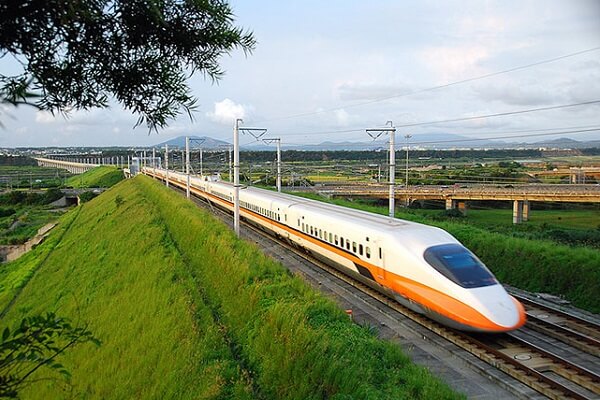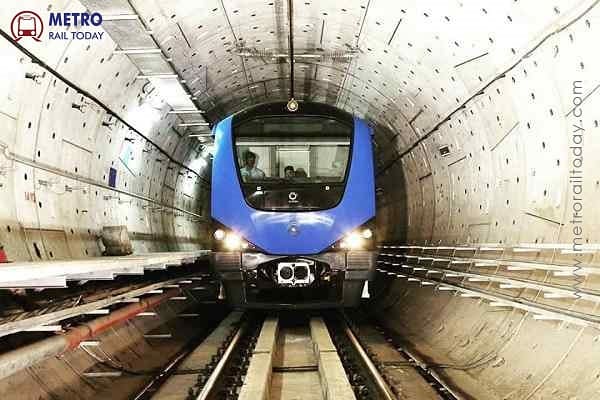 CMRL achieves second Tunnel Breakthrough at Thirumayilai for Chennai Metro Phase 2 Corridor 4
CMRL achieves second Tunnel Breakthrough at Thirumayilai for Chennai Metro Phase 2 Corridor 4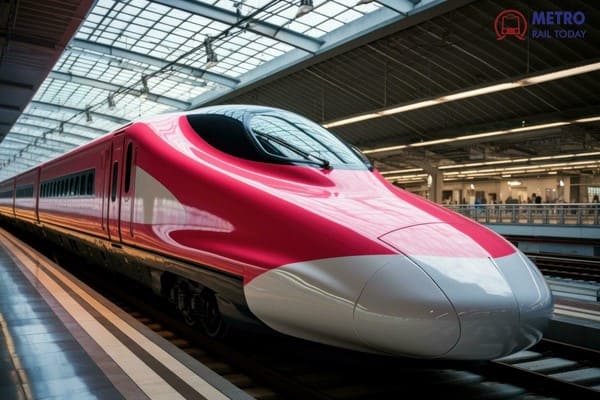 NHSRCL invites Single Tender from BEML for Bullet Train Rolling Stock Package
NHSRCL invites Single Tender from BEML for Bullet Train Rolling Stock Package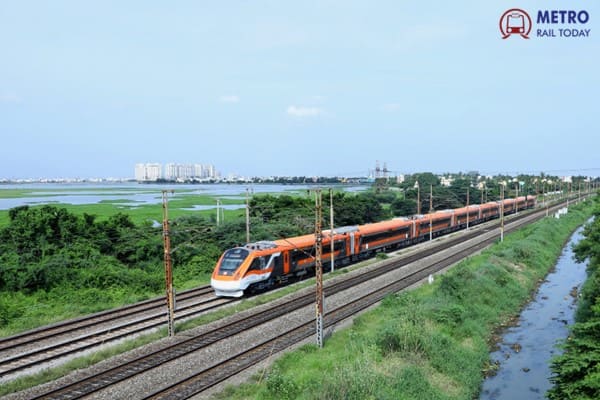 Railway Minister reviews progress of Ahmedabad–Dholera Semi High-Speed Rail Project
Railway Minister reviews progress of Ahmedabad–Dholera Semi High-Speed Rail Project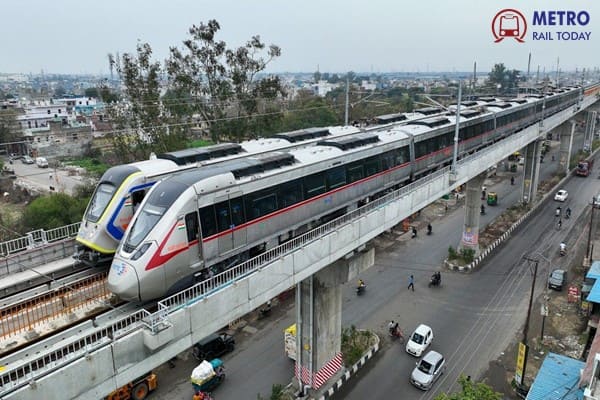 National Planning Group reviews key Rail & Metro projects under PM GatiShakti
National Planning Group reviews key Rail & Metro projects under PM GatiShakti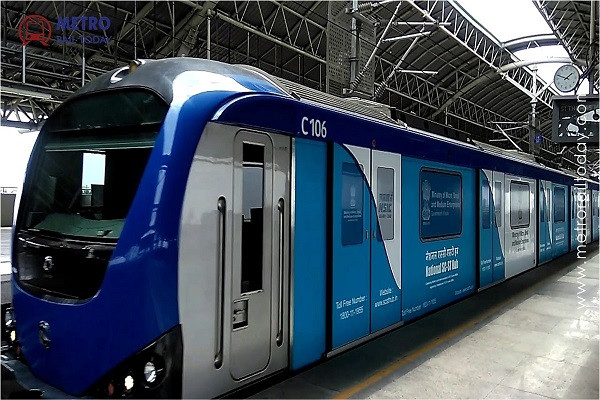 CMRS approves Driverless Metro Operations on first stretch of Chennai Metro Phase 2 Corridor 4
CMRS approves Driverless Metro Operations on first stretch of Chennai Metro Phase 2 Corridor 4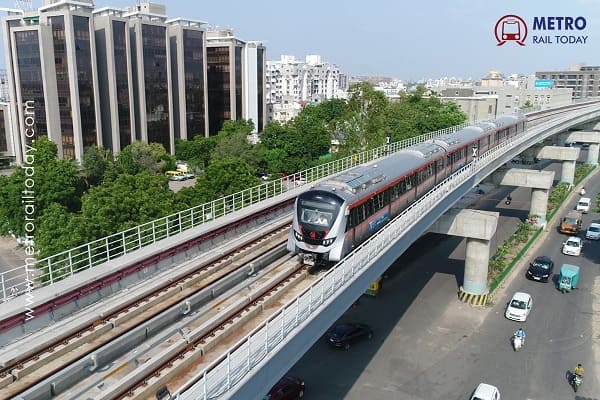 J Kumar Infraprojects completes Final Tunnel Breakthrough for Surat Metro Phase 1 Project
J Kumar Infraprojects completes Final Tunnel Breakthrough for Surat Metro Phase 1 Project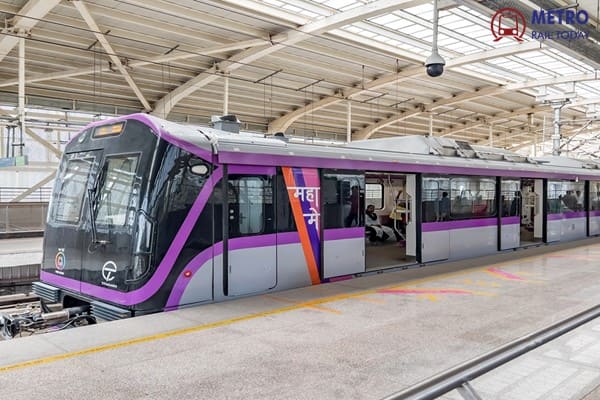 Apurvakriti Infrastructure awarded Ballastless Track Contract for Pune Metro Reach-1 Extension
Apurvakriti Infrastructure awarded Ballastless Track Contract for Pune Metro Reach-1 Extension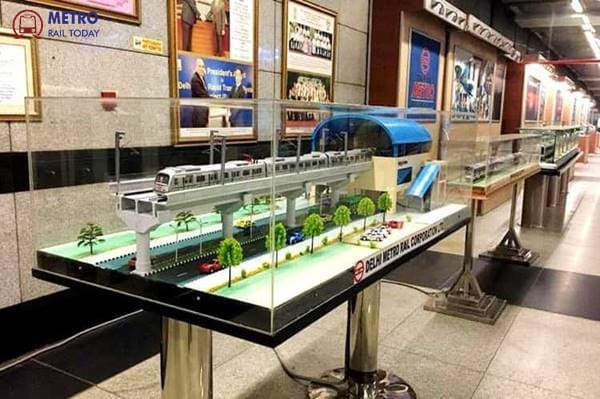 SAM India Builtwell bags first ₹222.76 Crore Civil Contract for Delhi Metro Phase V
SAM India Builtwell bags first ₹222.76 Crore Civil Contract for Delhi Metro Phase V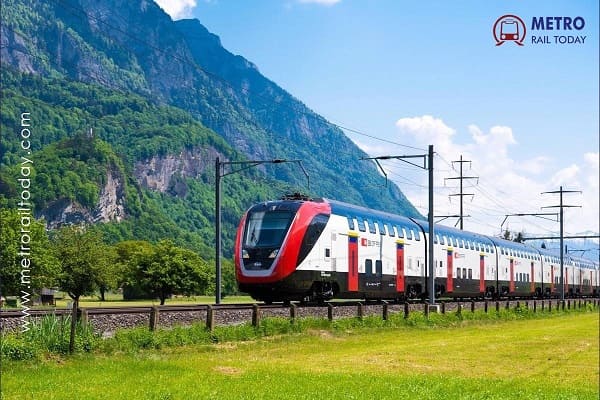 HRIDC conducts Investors Pre-Bid Meeting for Haryana Orbital Rail Corridor
HRIDC conducts Investors Pre-Bid Meeting for Haryana Orbital Rail Corridor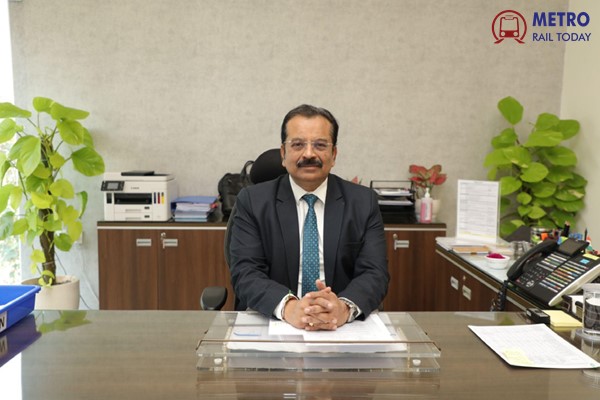 NCRTC Chief Shalabh Goel appointed as General Manager of Central Railway
NCRTC Chief Shalabh Goel appointed as General Manager of Central Railway
Afcons begins assembly of India’s Largest TBM for Mumbai–Ahmedabad Bullet Train Project
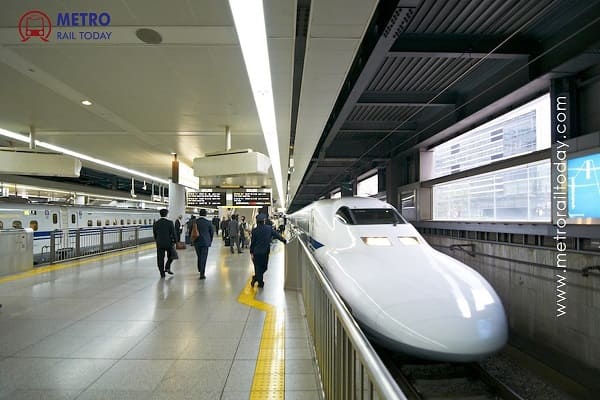
Mumbai, India (Metro Rail Today): In a major milestone for India’s first bullet train project, Afcons Infrastructure Ltd. has begun assembling its first Tunnel Boring Machine (TBM) at the Ghansoli (Sawli) Shaft site in Navi Mumbai for the Mumbai–Ahmedabad High-Speed Rail (MAHSR) corridor.
The machine — a 13.56-metre diameter Mixshield TBM built by Germany’s Herrenknecht AG — will be India’s largest ever tunnel boring machine, marking a technological breakthrough in the country’s infrastructure sector.
The TBM, likely model S-1392, had successfully passed factory acceptance tests (FAT) in mid-2024 and recently arrived at the project’s Shaft-3 location, where Afcons has constructed a 39-metre-deep circular shaft for tunnelling operations.
This shaft will facilitate tunnelling works for the 20.377 km underground section (Package C-2) between Bandra Kurla Complex (BKC) and Shilphata Ramp, which includes a 3 km undersea tunnel beneath Thane Creek — the first of its kind in India.
The 485-metric-ton TBM, which had been delayed for over a year due to Chinese export restrictions, has now been cleared and transported to India for assembly.
Engineering and Execution
The Mixshield TBM will be commissioned from Sawli towards Vikhroli as part of the C-2 Package, valued at ₹6,397 crore, awarded to Afcons Infrastructure by National High Speed Rail Corporation Limited (NHSRCL) in June 2023.
Afcons has constructed three major shafts at BKC Station (36 m deep), Vikhroli (56 m), and Sawli (39 m), along with a 42 m inclined shaft at Ghansoli and a tunnel portal at Shilphata for NATM tunnelling works spanning 5 km.
Afcons’ casting yard in Mahape is ready with thousands of pre-cast segments to feed the TBMs for tunnel ring construction, signaling readiness for continuous excavation once commissioning begins.
Largest TBM in India
At 13.56 metres, this TBM surpasses the 12.19 m CRCHI “Mavala” TBM used for the Mumbai Coastal Road Project, making it the largest TBM ever deployed in India.
For comparison, metro tunnelling projects across India typically use TBMs with diameters between 6.45 m and 6.68 m.
The massive cutterhead, currently being assembled at Sawli, will allow the TBM to handle the complex geology and water pressure of the Thane Creek undersea stretch with advanced slurry separation technology.
Accelerating Progress on India’s First Bullet Train
The 508.17 km MAHSR project, connecting Mumbai and Ahmedabad, is India’s flagship high-speed rail initiative, executed with technical and financial support from the Government of Japan through the Japan International Cooperation Agency (JICA).
With over 323 km of viaducts and 399 km of pier work already completed, the first bullet train services are expected to begin between Surat and Bilimora by December 2027, with full corridor operations by 2029.
Commenting on this development, Mrs. Mamta Shah, MD & CEO of Urban Infra Group, said:
“The deployment of India’s largest TBM by Afcons Infrastructure represents a leap in indigenous engineering capability and project execution scale. It reflects how the Mumbai–Ahmedabad Bullet Train is not only reshaping India’s transport landscape but also setting new global benchmarks in underground construction. Such advancements symbolize India’s growing self-reliance and technological confidence in executing world-class infrastructure.”
Looking Ahead
Once operational, this undersea tunnel and its adjoining sections will serve as the most technically challenging part of the entire high-speed rail corridor.
The MAHSR project — spanning 12 stations across Maharashtra, Gujarat, and the Union Territory of Dadra & Nagar Haveli — is a cornerstone of India’s modern transport revolution under the Viksit Bharat 2047 vision, promising faster, safer, and greener intercity connectivity.





